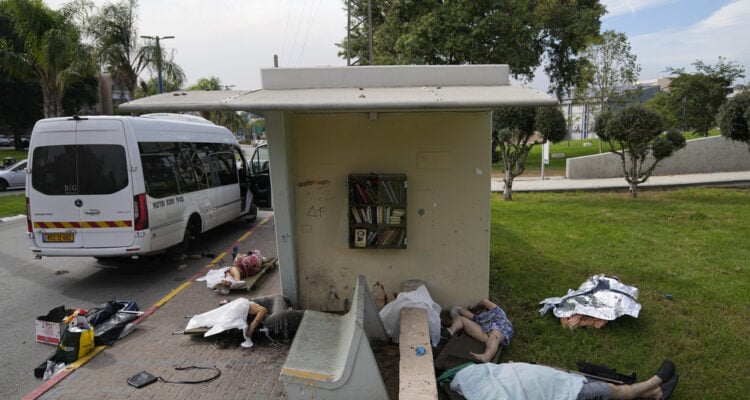Hamas terrorists, armed with automatic rifles, easily outgunned members of the city’s emergency squad, who had only their personal handguns.
By World Israel News Staff
Initial findings from a probe of security failures in Sderot on October 7 paint a disturbing picture, as disorganization and logistical issues appear to have exacerbated the horrific events of that day.
According to a summary of the report from Hebrew-language outlet Ynet, the city’s emergency response squad was woefully underprepared and incapable of effectively battling a terrorist invasion.
The report found that the emergency squad members were armed only with their personal handguns, while Hamas terrorists roaming the streets had automatic rifles.
Months before the invasion, the resignation of Sderot Police Chief Kobi Harush triggered a bureaucratic policy, which required the members of the city’s emergency squad members to return their automatic weapons to the IDF’s Gaza Division.
Harush, who resigned because he was diagnosed with cancer, was designated by the army to be the ultimate authority responsible for the emergency squad’s rifles.
Army policy required the weapons to be turned over to the military until a new police chief in the city could be held responsible for the arms.
Sderot Mayor Alon Davidi was reportedly not informed about the return of the weapons.
Prior to the terror onslaught, Ronen Gabbay, Sderot’s then-recently appointed chief of police, had made a request to the military for the return of the automatic weapons.
Lengthy bureaucratic delays meant on October 7, Gabbay’s request was still being processed by the army.
Additionally, the IDF did not schedule or carry out consistent training sessions with Sderot’s emergency squad, in violation of army and security policies.
Sderot’s municipal bomb shelters, which were controlled by a central electronic system, failed to open during air raid sirens on October 7th.
Families of victims murdered on that day are suing Motorola, which produced the “smart” shelters, and the city of Sderot. If the doors of the shelters had opened, victims could have been protected from Hamas gunmen and rocket fire, the plaintiffs say.





